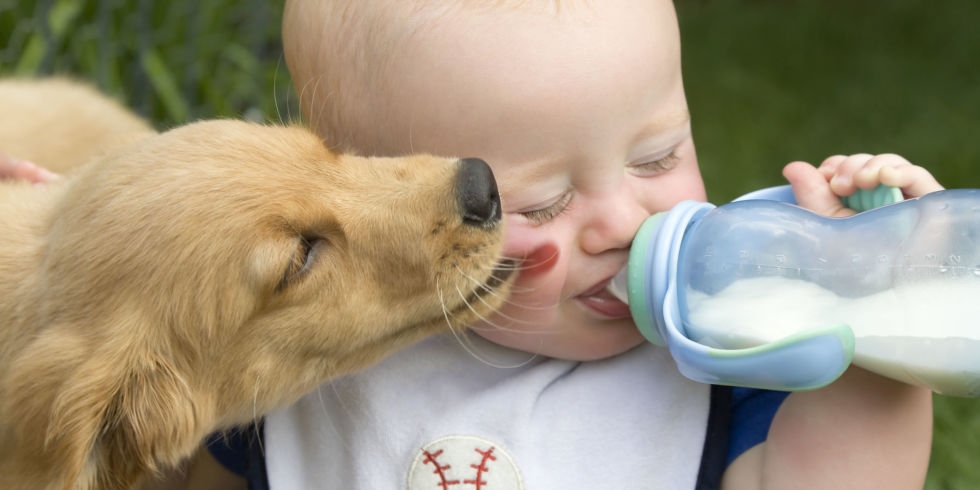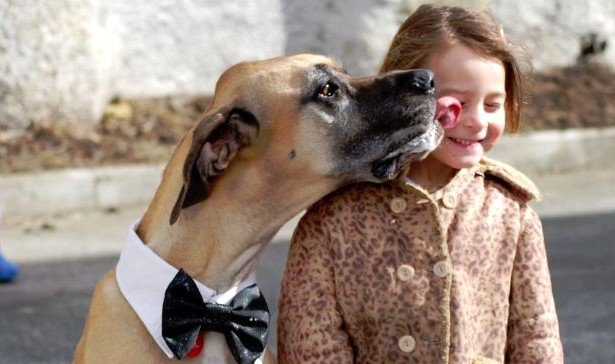
Call us Now ![]() +91-8744012053
+91-8744012053
Mon - Sat ~ 10:00 AM - 6:00 PM
Follow & Like
.png)


Call us Now ![]() +91-8744012053
+91-8744012053
Mon - Sat ~ 10:00 AM - 6:00 PM
Follow & Like
.png)



Did you know a lick from your dog is more than just a signal of affection? To decipher an inherent licking behavior in dogs, Dog parents can learn to interpret the many reasons associated with licking as a form of communication, more often than not licking the master is implicitly linked to showing affection and healthy bonding. It is a sign of ease with the surroundings as the process is linked to a secretion of happy hormones in dogs.
A new mother is often seen licking her canine cubs for purposes of grooming and stimulating their fecal discharge as well as passing of urine. The puppies are often seen licking one another as a way of social interaction. Also the cardinal desire to satiate the hunger pangs may very well be communicated to the four legged mother via the tonguing mode.
Young pack mates lick one another to strengthen the ties. Once a dog attains adulthood, it will lick the face of the pack leader to show its subservience to the alpha dog that in turn will not lick back but stand fiercely erect to state its supremacy.
However there may be other latent causes associated with the canine act of licking.
 www.urdogs.com
www.urdogs.com
When your dog is licking you
In all probability the situation can be gauged as one of a pleasant greeting to the master. Another way to look at it is that your pet dog is using its tongue to obtain your attention towards something that it needs; such as food or water. Yet again it is a great tool to highlight something that is missing or incoherent in your dog’s daily routine.
Tonguing the parent could also mean that the pet is longing for your gentle stroking. In some cases licking is a playful gesture.
Dogs may enjoy licking our face as the salty taste of our skin appeals to their distinguished palate. Sometimes tiny particles of grub cling on to our skin that the pooch might just want to get a taste of.
When the pooch is seen licking itself
This could simply mean that your dog is into maintaining proper hygiene just as cats, are seen grooming themselves via licking. Also the procedure is sometimes adopted by the pet dog to heal its injuries. As its saliva is laden with bacteria-killing enzymes and when the wounds are slathered with saliva the dirt is cleaned off automatically.
Therefore licking is an instinctive behavior an animal needs to slip back to, which the human parents need to embrace along with the dog.
Understanding LICKING as a Compulsive Disorder
Licking may turn into one twisted activity as observed in the cases that are listed below and the best way to deal with it would include the involvement of a veterinary, animal behaviorist or a qualified dog trainer.
When the dog indulges in obsessively licking any particular thing or themselves time and again then it may be an indication that the dog is under stress or is nervous.
EXCESSIVE Licking of wounds can do more harm than good as it can aggravate the injury by ripping open the cut/s.
Sometimes the anal glands become sore as the pet is unable to discharge the fluids from them on its own. This may lead the pet towards Unnecessary and Extreme Licking of the rectum/anal area and calls for veterinary help as the need to perform a procedure termed as the anal gland expression may arise.
Some dog owners may avoid getting licked too often by their canine babies, the best way to escape a dollop of dribble on the face or arms is to calmly leave the area and go to the other room, to encourage the dog from ceasing the action right in the beginning of it. The pet begins to associate his licking with you ignoring it & leaving the room. So it makes him practice such a show of affection towards you less often.
Article Resource Box:
http://www.vetstreet.com/our-pet-experts/why-does-my-dog-always-lick-me#1_xtl8flz8
https://www.cesarsway.com/
Top Image Credit :
www.womansday.com